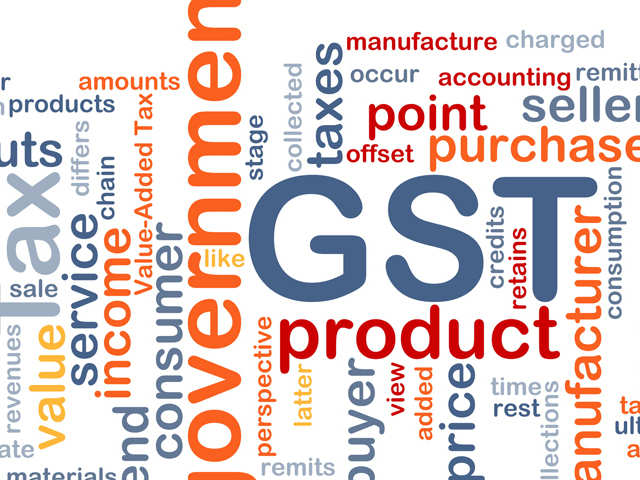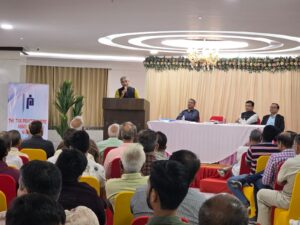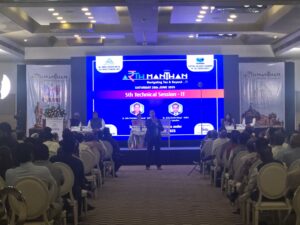GST WEEKLY UPDATE : 17/2021-22 (25.07.2021) By CA Vipul Khandhar

 CA VIPUL KHANDHAR, KHANDHAR & ASSOCIATES, CHARTERED ACCOUNTANT
CA VIPUL KHANDHAR, KHANDHAR & ASSOCIATES, CHARTERED ACCOUNTANT
- CBIC clarifies Extension of Limitation under GST Law in terms of Supreme Court’s Order:
The CBIC issued the clarification extension of limitation under GST Law in terms of the Supreme Court’s Order dated April 27, 2021.
“We, therefore, restore the order dated 23rd March 2020 and in continuation of the order dated 8th March 2021 direct that the period(s) of limitation, as prescribed under any general or special laws in respect of all judicial or quasi-judicial proceedings, whether condonable or not, shall stand extended till further orders. It is further clarified that the period from 14th March 2021 till further orders shall also stand excluded in computing the periods prescribed under Sections 23 (4) and 29A of the Arbitration and Conciliation Act, 1996, Section 12A of the Commercial Courts Act, 2015, and provisos (b) and (c) of Section 138 of the Negotiable Instruments Act, 1881 and any other laws, which prescribe period(s) of limitation for instituting proceedings, outer limits (within which the court or tribunal can condone delay) and termination of proceedings. We have passed this order in exercise of our powers under Article 142 read with Article 141 of the Constitution of India. Hence it shall be a binding order within the meaning of Article 141 on all Courts/Tribunals and Authorities,” the Supreme court order said. The extension granted by the Supreme Court order applies only to quasi-judicial and judicial matters relating to petitions/ applications/ suits/ appeals/ all other proceedings. All other proceedings should be understood in the nature of the earlier used expressions but can be quasi-judicial proceedings. Hon’ble Supreme Court has stepped in to grant extensions only with reference to judicial and quasi-judicial proceedings in the nature of appeals/ suits/ petitions etc. and has not extended it to every action or proceeding under the CGST Act. For the purpose of counting the period(s) of limitation for filing of appeals before any appellate authority under the GST Law, the limitation stands extended till further orders as ordered by the Hon’ble Supreme Court in Suo Motu Writ Petition (Civil) 3 of 2020 vide order dated 27th April 2021.
Thus, as of date, the Orders of the Hon’ble Supreme Court apply to appeals, reviews, revisions, etc., and not to original adjudication. Various Orders and extensions passed by the Hon’ble Supreme Court would apply only to acts and actions which are in nature of judicial, including the quasi-judicial exercise of power and discretion. Even under this category, the Hon’ble Supreme Court Order applies only to a lis that needs to be pursued within a time frame fixed by the respective statutes. Wherever proceedings are pending, judicial or quasi-judicial which requires to be heard and disposed of, cannot come to a standstill by virtue of these extension orders.
The CBIC added. In other words, the extension of timelines granted by Hon’ble Supreme Court vide its Order dated 27.04.2021 is applicable in respect of any appeal which is required to be filed before Joint/ Additional Commissioner (Appeals), Commissioner (Appeals), Appellate Authority for Advance Ruling, Tribunal and various courts against any quasi-judicial order or where proceeding for revision or rectification of any order is required to be undertaken and is not applicable to any other proceedings under GST Laws.
2. CBIC issues Clarification on applicability of IGST on Repair Cost, Insurance and Freight, on Goods Re-imported after being Exported for Repairs:
The CBIC issued the clarification on applicability of IGST on repair cost, insurance and freight, on goods re-imported after being exported for repairs on the recommendations of the GST Council made in its 43rd meeting. Notification Nos. 45/2017-Customs and 46/2017-Customs, both dated 30th June, 2017, issued at the time of implementation of GST, prescribe certain concessions from duty/taxes on re- import of goods exported for repair outside India. These notifications, specifically serial No. 2 ibid, clearly specify that goods exported (other than those exported under claim of benefits listed), when re-imported into India, are exempt from so much of the duty of customs leviable thereon which is specified in the said First Schedule of the Customs Act, 1962, and the integrated tax, compensation cess leviable there on respectively under sub-section (7) and (9) of section 3 of the said Customs Tariff Act, 1975 as is in excess of the duty of customs which would be leviable if the value of re-imported goods after repairs were made up of the fair cost of repairs carried out including cost of materials used in repairs (whether such costs are actually incurred for not), insurance and freight charges, both ways. “Notification prescribes that duties or taxes (including BCD, IGST, etc) at the applicable rates will be payable on such imports, calculated on the value of repairs, insurance and freight, instead of the value of the goods itself.
Accordingly, under GST, IGST and Compensation cess were made applicable on the value of repairs, insurance and freight on re-import of goods sent abroad for repair.
- Filing of Annual Returns by Composition Taxpayers: GSTN address issue of Negative Liability in GSTR-4:
The GSTN addressed the instances where taxpayers are reporting negative liability appearing in their GSTR-4. From FY 2019-20, composition taxpayers have to pay the liability through Form GST CMP-08 on a quarterly basis while GSTR-4 Return is required to be filed on annual basis after the end of a financial year. The GSTN while stating the reason said that the liability of the complete year is required to be declared in GSTR-4 under applicable tax rates. Taxpayers should fill up table 6 of GSTR-4 mandatorily. In case, there is no liability, the said table may be filled up with a ‘0’ value. If no liability is declared in table 6, it is presumed that no liability is required to be paid, even though, the taxpayer may have paid the liability through Form GST CMP-08. In such cases, liability paid through GST CMP-08 becomes excess tax paid and moves to Negative Liability Statement for utilization of the same for subsequent tax period’s liability. “Liability paid through Form GST CMP-08 is auto-populated in table 5 of the GSTR-4 for convenience of the taxpayers. Taxpayers who do not fill up table 6 of GSTR-4 i.e. no liability is declared, even though, the taxpayer may have paid the liability through Form GST CMP-08; since the ‘Tax payable’ in GSTR-4 is computed after reducing the liability declared in GST CMP-08 and then auto-populated in table 5. Thus, if nothing is declared in table 6, then the negative liability entry appears in GSTR-4,” the GSTN while pointing out the mistake of the taxpayer added. If table 6 of GSTR-4 has not been filled due to oversight, a ticket may be raised to nullify the amount available in the negative liability statement. If there is no liability to be paid during the year, the liability paid through Form GST CMP-08 shall move to a negative liability statement and the same excess amount can be utilized to pay the liability of future tax periods.
- Authorised Carrier may surrender Registration through a written request to Jurisdictional Commissioner of Customs:
The CBIC has notified that the authorized carrier may surrender Registration through a written request to the Jurisdictional Commissioner of Customs. The board has notified the Sea Cargo Manifest and Transhipment (Fifth Amendment) Regulations, 2021 which seeks to amend Sea Cargo Manifest and Transhipment Regulations, 2018. As per the amendment where the Jurisdictional Commissioner of Customs is satisfied with the information provided by the applicant in Form-I, he shall register such applicant for transacting business under these regulations. The registration shall be valid unless and until revoked in terms of the provisions under regulation 3A or regulation 11.
Provided that the registration of the authorized carrier shall be deemed invalid if the authorized carrier is found to be inactive for a period of one year. The term ‘inactive’ refers to an authorized carrier who does not transact any business pertaining to Customs during a period of one year, excluding the period for which registration has been suspended under regulation 11.” The notification inserted Regulation 3A in respect of the Surrender of registration which reads “an authorized carrier may surrender his registration issued under regulation 3 through a written request to the Jurisdictional Commissioner of Customs.
- No Flood Cess from 1st August, 2021: Kerala Govt:
The Kerala Government has announced that the flood cess would be applicable till 31st July 2021. In a press release issued today by the Government has directed the businesses to make necessary changes in their billing software accordingly. Currently, goods and services attracting more than 5% GST are subject to an additional one per cent cess.
- Recent AAR & Judicial Decisions:-
(i) Hon’ble Gujarat Highcourt Decision Regarding Medical Store run by Charitable Trust requires GST Registration:
The Gujarat High Court while affirming the Gujarat Appellate Authority of Advance Ruling (GAAAR) ruled that medical stores run by the charitable trust require GST Registration. The petitioner, Nagri Eye Research Foundation through its Secretary has challenged the impugned order dated 28.01.2021 passed by the Gujarat Appellate Authority for Advance Ruling, Goods and Service Tax, whereby the GAAAR has confirmed the Advance Ruling given by the Gujarat Authority for Advance Ruling while rejecting the appeal of the petitioner.
The petitioner is a registered charitable Trust set up with various objectives basically and essentially of undertaking eye and research activities to be carried out by C.H. Nagri Municipal Hospital as well as procurement and management of funds for the purpose of education and charitable activities in eye research and prevention of blindness. The petitioner trust is also running a medical store where the medicines to the indoor and outdoor patients of the petitioner Hospital are sold at a lower rate. Whatever marginal/little difference in terms of excess income over expenditure is earned, the same is used only for the purpose of mitigating any unforeseen eventualities and/or administrative expenses.
Appellant had seeking advance ruling on the questions in respect of the requirement of GST Registration for a medical store run by Charitable Trust and Medical store providing medicines at a lower rate would amount to supply of goods.
The Gujarat highcourt held that appellant has failed to substantiate or justify his submission as to how such activity of selling medicines to the patients for consideration could not be said to be a trade or commerce. For the purpose of “business” under Section 2(17) of the Act, it is immaterial whether such a trade or commerce or such activity is for the pecuniary benefit or not. “Both the authorities have in detail considered the submissions and the issues raised by the petitioner Trust and held that the Medical Store run by the Charitable Trust would require GST Registration and that the Medical Store providing medicines even if supplied at a lower rate would amount to supply of goods. The Court does not find any illegality or infirmity in the said orders passed by the authorities,” the Bench while upholding the AAAR’s order said.
(ii) AAR On CA, CS coaching institutes not eligible for GST exemption:
Kerala’s Appellate Authority for Advance Ruling (AAAR) has upheld that an institute imparting coaching to students for qualifications like Chartered Accountancy (CA), Cost Accountancy, Company Secretary (CS), Certified Management Accountant (CMA), Certified Public Accountant, Association of Chartered Certified Accountant etc. is not covered under the definition of ‘educational institution’, and therefore not eligible for GST exemption.
(iii) AAR On Services to supervise handling and transportation (H&T) of agriculture produce are covered under SAC 9997, taxable at 18%:
(Applicant – Karnataka State Warehousing Corporation)
Services of applicant to supervise handling and transportation (H&T) of agriculture produce belonging to Food Corporation of India, from railhead to warehousing station provided by H&T contractors, are covered under SAC 9997 being services nowhere else classified and are exigible to GST at rate of 18 per cent in terms of Sl.No.35 of Notification No. 11/2017-Central Tax (Rate), dated 28-6-2017.
Disclaimer:
This publication contains information for general guidance only. It is not intended to address the circumstances of any particular individual or entity. Although the best of endeavour has been made to provide the provisions in a simpler and accurate form, there is no substitute to detailed research with regard to the specific situation of a particular individual or entity. We do not accept any responsibility for loss incurred by any person for acting or refraining to act as a result of any matter in this publication.
THANKING YOU.
(The author is a well known Chartered Accountant from Ahmedabad. His articles regarding Goods & Service Tax are very popular amongst Tax Professionals and Tax Payers.)




